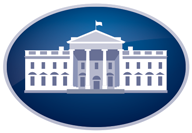
From the White House blog, Neil Eggleston, Counsel to the President
As a former Assistant U.S. Attorney and criminal defense attorney, I’m well acquainted with how federal sentencing practices can, in too many instances, lead nonviolent drug offenders to spend decades, if not life, in prison. Now, don’t get me wrong, many people are justly punished for causing harm and perpetuating violence in our communities. But, in some cases, the punishment required by law far exceeded the offense.
These unduly harsh sentences are one of the reasons the President is committed to using all the tools at his disposal to remedy unfairness in our criminal justice system. Today, he is continuing this effort by granting clemency to 46 men and women, nearly all of whom would have already served their time and returned to society if they were convicted of the exact same crime today.
In a video released today, the President underscored the responsibility and opportunity that comes with a commutation:
In taking this step, the President has now issued nearly 90 commutations, the vast majority of them to non-violent offenders sentenced for drug crimes under outdated sentencing rules.
While I expect the President will issue additional commutations and pardons before the end of his term, it is important to recognize that clemency alone will not fix decades of overly punitive sentencing policies. Tune in tomorrow as the President, [in an address to the NAACP], shares additional thoughts on how, working together, we can bring greater fairness to our criminal justice system while keeping our communities safe.
President Obama Grants Commutations
WASHINGTON, D.C. – Today, President Barack Obama granted commutations of sentence to 46 individuals.
The list is at the link.
Here is one of the letters the president sent:



Obama To Outline Criminal Justice Reform In NAACP Speech
Livestream of Convention is here: NAACP ANNUAL CONVENTION: PURSUING LIBERTY IN THE FACE OF INJUSTICE
The president speaking at the NAACP convention on Tuesday:
(Transcript link will be posted when it is available)
News report from USA Today:
Transcript: Remarks by the President at the NAACP Conference
Selected quotes:
More on the plan to address sentencing and justice is in the transcript.
House Republicans are calling the commutations “unconstitutional” executive action. They really have never bothered to read the constitution, have they?
Period.
Sadly, the need for partisan sniping does not bode well for a bipartisan agreement anytime soon:
How to balance incarceration with public safety: Is It Possible To Let More People Out Of Prison, And Keep Crime Down?
Part the challenge will be getting help for people who are released from prison, and helping them get jobs via the check-box changes.
Everyone agrees with this.
Charlie Pierce: The President and the Prison Industrial Complex
In which President Obama will be the first sitting U.S. president to visit a federal prison, as he takes on another tough issue in his efforts towards criminal justice reform.